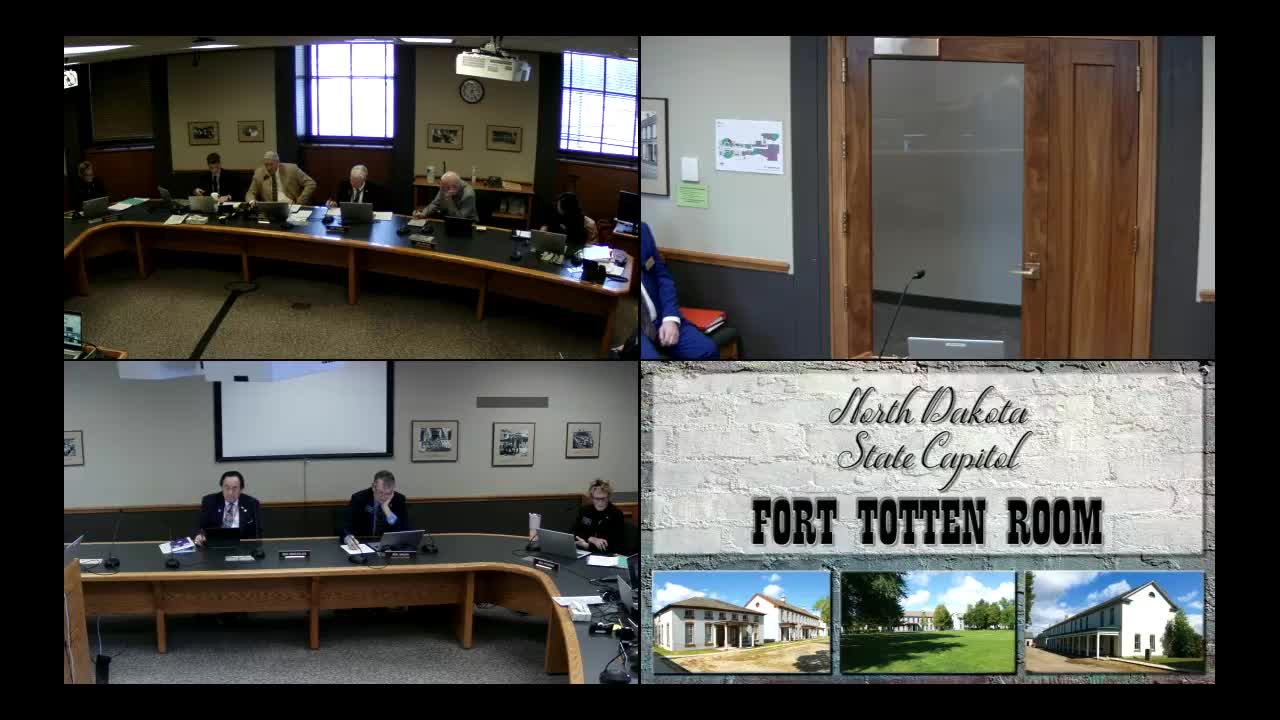Committee delays vote on SB2039 after questions about 'agricultural property' exemption, new construction and 'endpoint user' definition
Get AI-powered insights, summaries, and transcripts
Subscribe
Summary
The Finance and Taxation Committee heard technical testimony on Senate Bill 2039, which would change the tax treatment of agricultural storage and possibly allow new construction to qualify for agricultural property exemptions, and delayed action while the sponsor prepares an amendment.
The Finance and Taxation Committee heard extended technical discussion of Senate Bill 2039, which would alter the definition and tax treatment of agricultural property and storage. Officials from the Office of the State Tax Commissioner and the State Supervisor of Assessments answered multiple questions about how the proposed changes would be administered, what constitutes an "endpoint user," and whether new construction in cities could qualify for a farm-storage exemption under the bill as written.
Shelly Myers, state supervisor of assessments, told the committee she advises tax directors and that, "there's nothing to prohibit that" under current code interpretations, meaning a structure built in a city could qualify if it met the bill's language. On the question of definitions she said, "For me, a definition would be helpful," referring to the term "endpoint user." Charles Dende, general counsel for the Office of the State Tax Commissioner, told the panel the bill "would kinda interplay with that existing exemption language elsewhere" and that structure use could affect whether a building itself is exempt.
Senators pressed for clarity on multiple points: whether processed or value-added agricultural activity (drying, chemical treatment, or washing) would remove a property from the exemption; whether a farmstead residence built adjacent to qualifying ground would be eligible for a farm-home exemption; and whether statutory language defines "crops" and "farmer" for uniform administration. Committee counsel and witnesses referenced Century Code provisions, and testimony identified an existing statutory definition of "farmer" (noted in the hearing as 57‑02‑08(15) in code) that hinges on a majority of gross income coming from farm activities.
Several senators warned the proposal could allow new storage facilities to be built inside cities and receive tax-exempt status, effectively removing multiple location-based tests from consideration. Senator Noble summarized the committee reading: removing the listed subdivision conditions would allow storage facilities to be tax-exempt regardless of city location. Senator Patton and others emphasized the fiscal trade-offs: exemptions shift the tax burden or force local service cuts for the benefit of the exempt property; one committee member cited a local example that would reduce tax revenue by about $116,000 to the taxing district if the exemption were granted.
Nut graf: The discussion focused on administrability and definitions that affect consistent statewide application. Because the sponsor requested time to draft an amendment addressing those concerns, the committee deferred a vote and asked senators to work with the sponsor on potential fixes.
The chair asked Senator Rummel to work with sponsor Senator Myrtle and others on an amendment; the committee planned to take the revised bill up at a future meeting. No formal committee vote on SB2039 occurred at this session.
Ending: Committee members said they will revisit SB2039 once the sponsor files an amendment and the committee has had time to review clarified definitions and administrative guidance.
